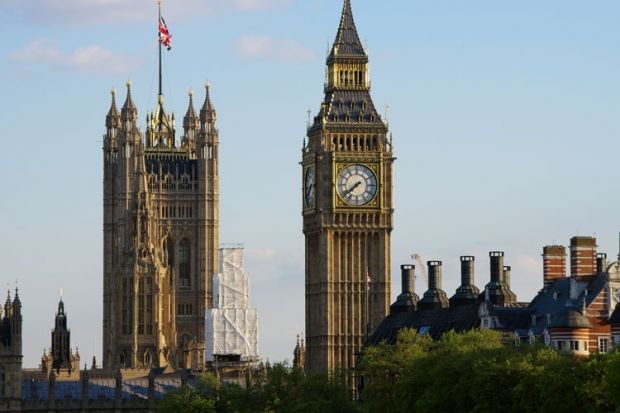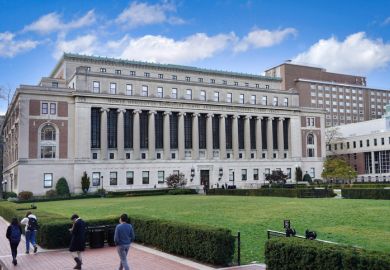MPs have recommended that the government undertakes “an urgent review of the sustainability of the student loan system” and have criticised plans to sell loans.
Today’s report by the cross-party Business, Innovation and Skills Committee, which also highlights the government’s “persistent miscalculation” of loan write-offs, will raise further questions about the government’s stated plan to finance the abolition of student number controls by the sale of pre-2012 student loans. It comes days after Vince Cable, the business secretary, said he was scrapping the sale, because “recent evidence” suggested that it would not reduce government debt.
The report says that internal estimates prepared for the government by investment bank Rothschild suggest the sale could raise just £2 billion – compared with the government’s publicly stated estimate of £12 billion.
The BIS committee report follows hearings held by the committee earlier this year, as well as a highly critical report on the student loans system by the National Audit Office.
Total outstanding graduate debt in the student loans system is expected to reach £330 billion by 2044 according to government estimates, the report notes.
“Our report highlights a number of weaknesses in the management of this key financial commitment and we are concerned that government is rapidly approaching a tipping point for the financial viability of the student loans system,” says the BIS committee.
It adds that there should be “an urgent review of the sustainability of the student loan system. As part of that review, the government would do well to look abroad for examples of best practice and must come back with a clear timescale for this review.”
And the report warns: “Given the uncertainty around the amount the government could realise from the sale of income-contingent student loans, it is vital that the government sets out clearly where and how it will raise the £5.55 billion required to fund this policy for the next five years.”
The report looks at how BIS calculates its estimates of the portion of loan outlay that will never be repaid by graduates, known as the resource accounting and budgeting (RAB) charge, which has risen steadily from an initial 28 per cent to 45 per cent.
It notes criticisms by the Higher Education Policy Institute of the way BIS models future graduate earnings, including its use of assumptions about a uniform rate of increase across low, middle and high earners.
It is “disturbing” that independent forecasters have been “recommending improvements to the government’s methodology for some years, which the department has ignored”, says the report. “We recommend that it starts to listen now.”
The report also says: “The evidence that we have received, both in this inquiry and previous inquiries, suggests that there has been a persistent miscalculation of the department’s estimates of the RAB charge. The resulting holes in the budget are only just beginning to materialise.”
And it adds: “We recommend that, as a matter of urgency, the department conducts a full review of all the financial assumptions underpinning the department’s RAB model.”
Register to continue
Why register?
- Registration is free and only takes a moment
- Once registered, you can read 3 articles a month
- Sign up for our newsletter
Subscribe
Or subscribe for unlimited access to:
- Unlimited access to news, views, insights & reviews
- Digital editions
- Digital access to THE’s university and college rankings analysis
Already registered or a current subscriber? Login




